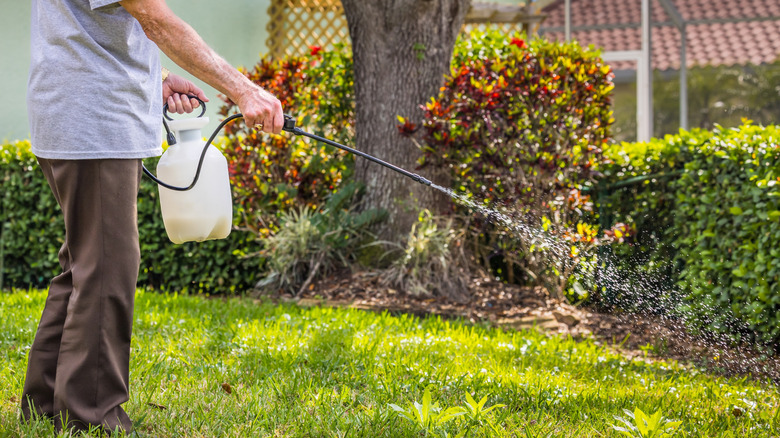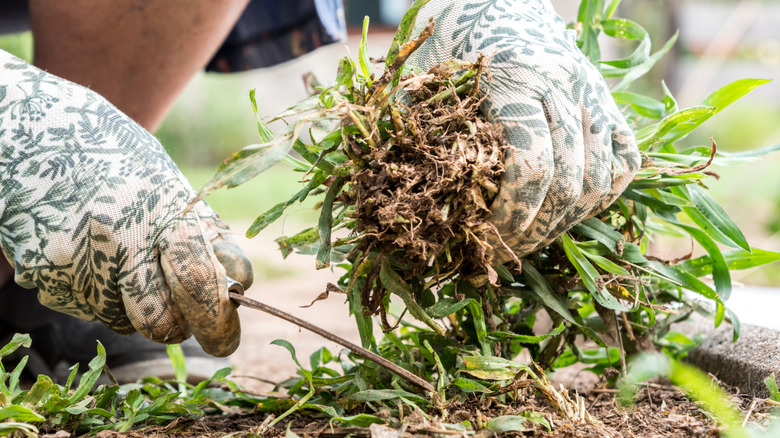Weed Killer Alternatives For Treating Your Lawn Or Grass
For many, a flourishing green lawn is a prized extension of their home. Perfection requires time and money, and finding a patch of weeds can feel like a betrayal. If you're loath to damage the planet, you can minimize the harm done to humans and the environment by using natural alternatives to commercial herbicides. Many of those herbicides contain glyphosate, an ingredient that's been named a probable carcinogen by the World Health Organization. Natural herbicides made from oils, soaps, acids, and chelates (iron) as well as good lawn maintenance are effective on weeds.
If you are starting your lawn from scratch, check the soil's pH and amend it if it's not between 6.0 and 6.5. Add organic material and grade it before seeding or adding sod. Corn gluten (CG) is gaining popularity as an alternative to preemergent herbicides, products that keep weed seeds from germinating. CG has not been proven to be effective by horticulturists, and while the nitrogen in the product may promote dense growth, the nitrates created by the nitrogen can be dangerous.
Keep weeds at bay in an established lawn by sticking to a schedule of watering, mowing and fertilizing. Plan to water three or four times a week — more often if the weather is hot and dry, less often when it's cool. Fertilize the lawn in the fall and again in late spring and summer. Mowing does more than make your lawn look tidy. It cuts off the tops of weeds before they can go to seed.
Organic alternatives for treating weeds in your lawn
There are a number of organic weed control products on the market. Formulations like Weed Zap, made from clove and cinnamon oils; GreenMatch EX, made from lemongrass oil; and Fiesta, made with iron chelate, are safe and effective, but they're non-selective herbicides, meaning they kill any green plant they touch, including your grass. Check labels carefully before you choose one of these products and only apply it to the weeds you want to kill.
You can make your own spot weed killers from common products you may already have in your pantry. However, like organic commercial products, they should only be used on the weeds themselves. A mixture of soapy water can be sprayed on the weeds on sunny days. Rubbing alcohol or a mixture of alcohol, water, and soap are effective. Salt or baking soda sprinkled on or around the weed and then watered works. Acetic acid may be the best-known natural way to kill weeds quickly, but working with vinegar with a 10 to 20% concentration of acetic acid, the most effective, requires some caution. Vinegar can burn your skin, eyes and lungs, so wear protective gear.
Removing young weeds by hand before they get out of control is effective if you make sure to get the entire taproot or rhizome if possible, so the weed doesn't grow back. Pouring boiling water on weeds or using a device called a weed torch to burn the unwanted plants are also uncomplicated natural alternatives.

